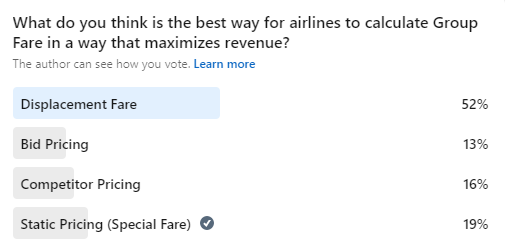The airline industry has long relied on Passenger Service Systems (PSS) and Global Distribution Systems (GDS) to support the group booking process. However, most airlines are still managing group bookings manually, which doesn’t satisfy the needs of today’s tech-savvy travelers. With the rise of metasearch engines, passengers will do their flight comparisons and analysis to plan their journeys.
To adapt to the changing landscape, airlines must embrace a more advanced offer and order management model to retain customers. This shift presents a remarkable opportunity to upgrade digitally and unlock substantial revenue potential.
Addressing Current Group Booking Offer Management Issues
These processes are primarily email driven. Airlines depend heavily on email responses and calls, leading to inconsistencies in data tracking and potential miscommunications. It is time-consuming for both the airline group booking team and group passengers and it also leads to many human errors. Sometimes it may end up with frustrations that customers reflect from delayed processes.
Since there is no access to real-time data airline executives cannot make guaranteed decisions from their reports. Some of the limitations are,
- Less visibility on group passengers’ history and preferences
- Restricted ability to provide a shopping experience for different travel products
- Inability to offer personalized products or sell new travel products
- Difficulty in applying complex group policies
The manual nature of these operations means that the airline team’s primary goal is to sell group booking seats. Selling personalized travel ancillaries becomes their secondary priority and proves to be a challenging task. This is a serious missed revenue opportunity for airlines to let it slip away. If they have to do it, they need to compile it from multiple sources and complex distribution systems to understand customer behavior, which consumes a lot of time and has constraints.
How GroupRM Revolutionizes Offer Management
Booking Engine
This is a single integrated platform where the airline team will be provided with a self-sufficient web portal to upload, create and manage group booking requests. It will also provide analytics to strategize and offer personalized travel products. Airlines will benefit from it since it seamlessly integrates revenue management and other distribution platforms to get real-time data.
Hyper-Personalization
Group revenue managers and group sales desks can manage and offer hyper-personalized products to the targeted customers. The offers can be easily pushed out to both air and non-air contents. It is a win-win for both serving a wide variety of customer needs.
Intelligent Pricing
All the data is synchronized and used for future purposes where the airline teams no longer have to go back and forth on the group quote. GroupRM will automatically generate group quotes using the available data and real-time evaluation. It doesn’t only create a group quote but dives within to even create a bundled offer that’s perfect for travel ancillaries.
Compared to the legacy type, this automated solution will help provide higher margin content that helps reach airline revenue goals. With GroupRM, airline executives will now be able to do the following 4 tasks effectively.
| Identify customer – Customized portal to segregate different user categories and get the reports | Present – Analyze the customer’s behaviors and preferences and create the right product. |
| Shop – Target personalized offerings based on current inventory, historical performance, and future forecast | Pricing – Use historical behavior and the current trend to forecast group materialization |
Addressing Current Group Booking – Order Management Issues
It is primarily based on the reservation system. The entire ticketing process, from group requests to confirmation, will be tedious and time-consuming for airline executives. The order processing is likely to be slow, and group passengers will face the following constraints:
- Communication is limited to email and phone for bookings
- Limited awareness of new travel products
- Extended waiting and processing times for group bookings
How GroupRM Revolutionizes Order Management
GroupRM provides several features that allow airlines to streamline group bookings with real-time information, quote generation, booking confirmation, payment processing, and reporting. This strengthens the airline’s ability to effectively manage orders.
Business Intelligence
GroupRM utilizes an advanced set of data analytics that give a deep understanding of customer behavior, market trends, and historical booking data. This gives airlines a deeper understanding of their target audience and makes informed decisions.
Customer Segmentation
With GroupRM’s business intelligence tools, airlines can categorize factors such as travel preferences, demographics, loyalty status, and purchasing patterns. This segmentation enables airlines to tailor their offers and promotions to specific customer segments, enhancing personalization and customer satisfaction.
Comprehensive automation
This is one of the cores of GroupRM’s capabilities. It gives a complete automation package for online order fulfillment, handling payments, post-booking modifications, and ticketing that gives 10x process fulfillment.
Smart shopping
This is a user-first interface where the customer will be provided with an intuitive web portal to prioritize the shopping experience for their travel products. The upside for airlines is the ability to understand customer behavior and upsell travel products.

About GroupRM
GroupRM has proven to be a game-changer for over 25 airlines, providing airline revenue managers, group sales desks, and administrators with seamless tracking and oversight of all group booking operations. The results were proven to get up to 28% revenue gain from full-service and low-cost carriers yielding remarkable outcomes. Within weeks of implementation, the solution will itself recover its investment by delighting the group passengers worldwide.
Schedule a demo or contact us now to take the first step towards transforming your airline’s group booking success with GroupRM.











